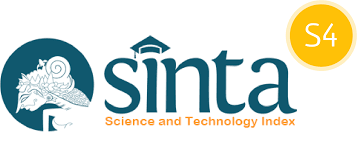Akreditasi

PROFESI (Profesional Islamic): Research Publication Media and its publisher by Institute of Technology and Health Science PKU Muhammadiyah Surakarta, are members of the Institute for Research and Community Service (LPPM). Therefore, this journal follows the Journal Editor's Code of Ethics and Best Practice Guidelines and the Journal Publisher's Code of Ethics. The following statement describes the ethical behavior of all parties involved in the act of publishing an article for the PROFESI (Profesional Islamic): Research Publication Media.
Authorship & Contributors
Authorship
The recommendation of the International Committee of Medical Journal Editors for the Conduct, Reporting, Editing, and Publishing of Scientific Work in the PROFESI (Profesional Islamic): Research Publication Media (ICMJE Recommendations 2018) recommends that authorship be based on the following four criteria:
In addition to being responsible for the parts of the work he has done, an author must also be able to identify which co-author is responsible for certain parts of the work. In addition, authors must have confidence in the integrity of the contributions of their co-authors.
Contributor
PROFESI (Profesional Islamic): Research Publication Media includes only one correspondent author per article. Further details of contributions (eg equivalent contributions) should be included in a contributor or acknowledgment section at the end of the article.
Post Publication Discussion and Corrections
PROFESI (Profesional Islamic): Research Publication Media welcomes discussion and correction of published articles by readers. If readers provide discussions and corrections to published articles, readers can contact the Chief Editor via email by explaining the discussions and corrections. If accepted (by the Editor in Chief), the discussion and corrections will be published in the next issue as a Letter to the Editor. Dear authors can reply/answer readers' discussions and corrections by sending a reply to the Chief Editor. Therefore, the Editor can publish the answer as a Reply Letter to the Editor.
Akreditasi

Plagiarism Checker

Reference Manager

This work is licensed under a Creative Commons Attribution 4.0 International License.